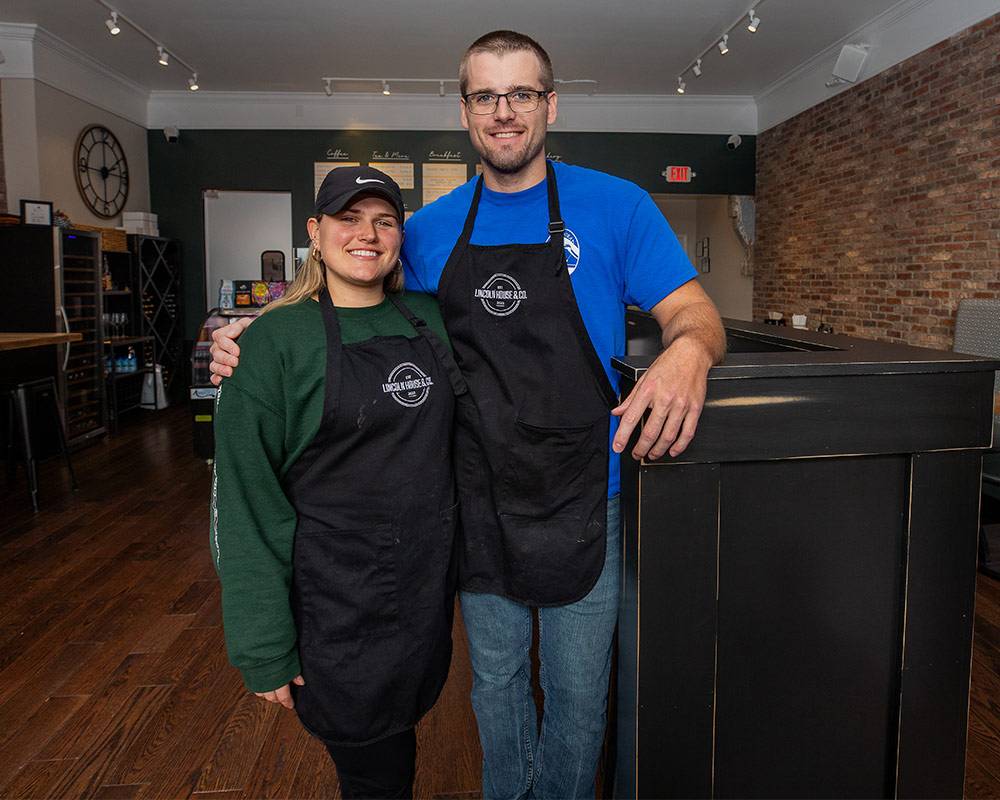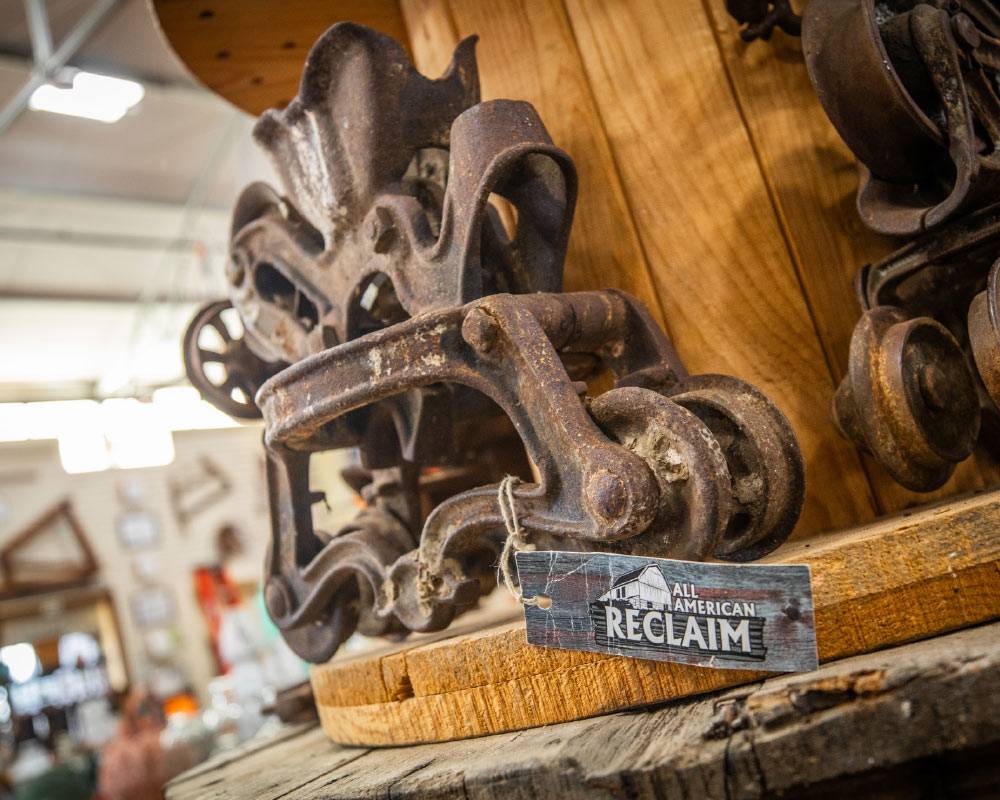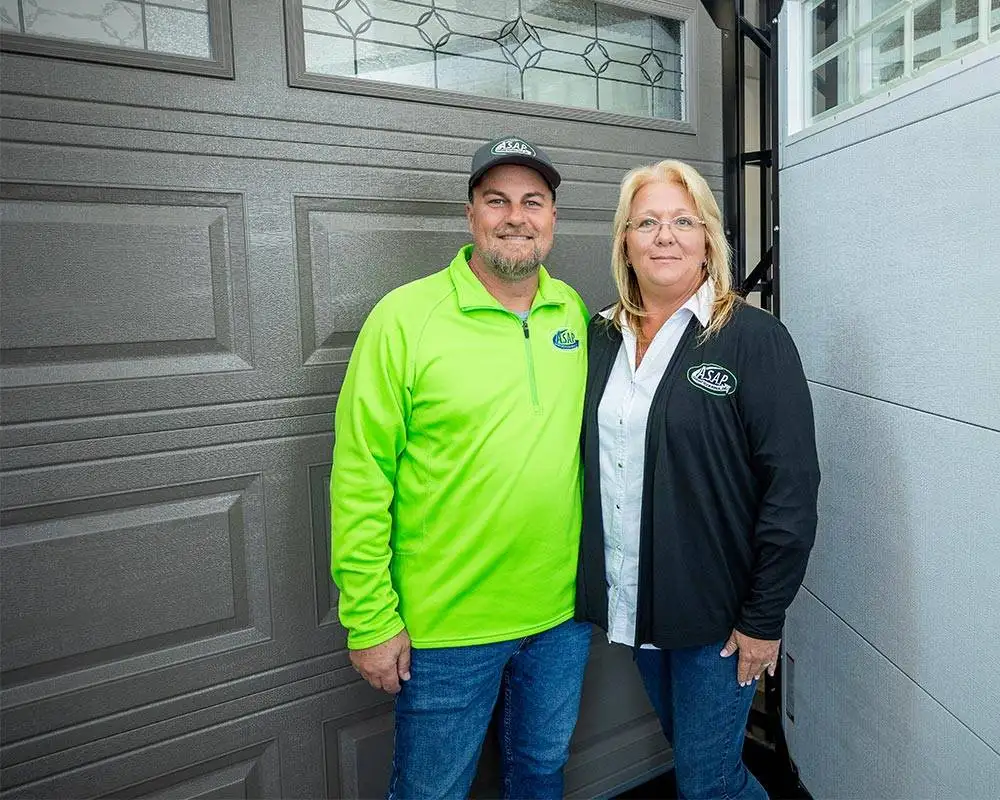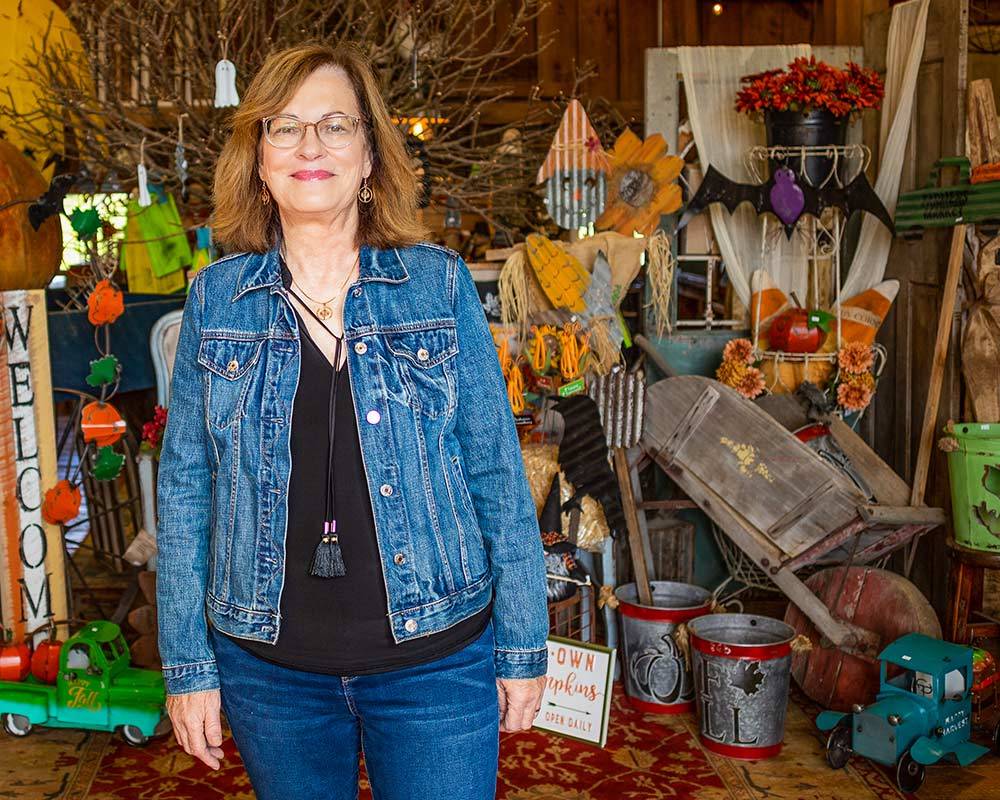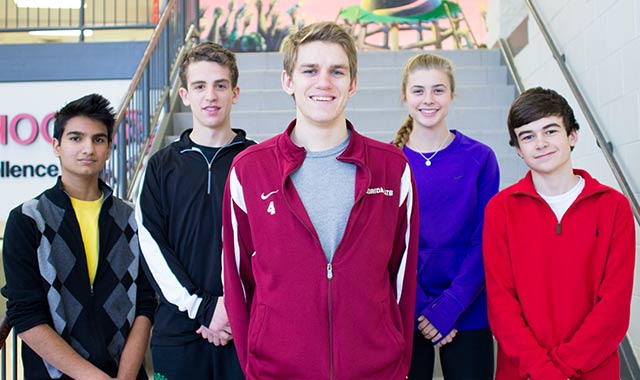Social entrepreneurs like Stephanie Wernet and Joan Pikas create sustainable businesses to help to alleviate social problems in their communities. See how these founders of Chicago’s Bright Endeavors are improving traditional work training programs – and the futures of young mothers – at the same time.

Entrepreneurs shaped America into the business powerhouse it is today. But as they say, the only constant is change, and paradigms are meant to be shifted.
Enter a new breed of entrepreneur – the social entrepreneur – to shake things up. Social entrepreneurs apply innovative business solutions to some of society’s most pressing problems, like poverty and unemployment.
Take the “give-a-fish versus teach-to-fish” paradigm. These folks don’t stop there. They extend the dock, outfit the boats, train the deckhands, build the canning factory – in short, create a sustainable business that breaks the cycle of poverty for an entire group of people.
A scant 7 months ago, 23-year-old Melissa, a Chicagoan, was unemployed and broke, with no self-confidence and no plans for the future. The mother of Lamya, a 7-year-old daughter, and with no real adult guidance herself, Melissa hadn’t finished high school, had never held a checking account or credit card.

“I was drinking, smoking weed, just hanging out,” she says. “I worked for a couple of months at the Salvation Army, but I didn’t stay with it.”
Now, Melissa has earned her GED and is attending college to become a physicians assistant. She holds a full-time job, maintains two checking accounts (one for bills, one for incidentals) and has squirreled away $1,300 into a savings account. And she no longer drinks or smokes pot. She credits the turnaround to her participation in Bright Endeavors, 4222 Ravenswood, a social enterprise of New Moms, both headquartered in Chicago.
Bright Endeavors was founded three years ago, by Stephanie Wernet and Joan Pikas, specifically to help inner-city, homeless and at-risk women, especially mothers, between the ages of 16 and 25. Participants have the chance to earn wages by making, packaging and selling candles, while learning transferable job and life skills.
“The idea of combining job training and paid work experience came to me about 18 years ago,” Pikas says. “Of course, it took a number of years to develop the idea and create a model. There weren’t many organizations doing that back then.”
“Traditional work programs last two or three weeks, all in a classroom-like environment,” Wernet explains. “Then, participants are left on their own to find jobs, with no follow-up, guidance or reinforcement.”
Anyone who’s had to look for work knows all too well the frustrating and disheartening process it can be. Just imagine how daunting, if you had no high school diploma or employment history, no proven skills or experience, maybe a criminal record or history of drug use.

“We immediately empower our participants, by employing them,” says Wernet. “The result is dramatic. That support gives them esteem and confidence. Participants begin to stretch themselves.”
Wernet met Pikas through The Enterprising Kitchen (TEK), a nonprofit business which Pikas founded in 1996, just down the street from Bright Endeavors, to provide support and employment training to a diverse group of low-poverty, at-risk women. TEK produces handmade, small-batch natural soaps and spa products that are marketed to wholesalers, retailers, nonprofit and corporate customers as well as online, and sold at fairs and farmers markets, from booths staffed by employees. That’s the business model being applied at Bright Endeavors.
The two women arrived at the same destination along very different paths.
Pikas received her degree in education and sociology at Washington University in St. Louis, and worked for several years as a teacher therapist for the Illinois Department of Mental Health. She learned a lot about herself at this job, she says – most importantly, that she’s good at listening to people’s problems and sharing what she can to help to solve them.
“My husband, Bruce, and I were almost empty-nesters,” she says. “We were at a point where we could afford for me to take a job that paid less. I was teaching GED classes in Evanston, and the students were older, in their 40s. It occurred to me that they needed to be employed, and to know that they are of value, at an earlier age.”
In contrast, Wernet earned a design degree at the Illinois Institute of Art-Chicago’s Ray Vogue College of Design, and worked in the hotel industry for eight years before moving into the social services field. Then, for another eight years, she was employed in a variety of roles by The Cara Program, a Chicago-based nonprofit group that reaches out to homeless and at-risk adults, mostly in their 40s.
“It was kind of an evolution for me,” Wernet says. “I felt a very strong connection to those facing the barriers of living in poverty. I kept thinking, if only we could reach younger individuals. If we could intervene before they reached that crossroads where they were forced to make bad choices, before their behaviors negatively influenced their children, it would allow us to touch two generations at the same time.”
That like-mindedness brought the pair together, and to their target group. They then needed to decide on their business plan and product line.

“Joan had extensive experience in the retail gift and spa product industry, and we spent over six months working on research and a business plan model before launching,” says Wernet. “Producing green candles, using vegetable waxes and reclaimed glass, was a simple and inexpensive way to launch into the retail gift and spa industry.”
Dreambean Candles are made from soy wax or palm wax, and their containers from recycled materials and repurposed items. For example, the Dreambean candle includes a Recycled Bottle Collection and a repurposed Wine Bottle Collection. Relatively local suppliers are used, mostly from Illinois, northwest Indiana and Wisconsin, and others overseas are scrutinized for fair trade and humane employee practices.
Wernet and Pikas began the business through fundraising and donations. “In addition to several individual supporters and donations, a few foundations gave us grants in our infancy that were critical to our immediate sustainability,” says Wernet. “The Dewan Foundation, Eileen Fisher, The Owens Foundation and The Jill Harris Philanthropic Fund were instrumental, and these groups continue to provide support.”
For example, Eileen Fisher, the American women’s clothing retailer, uses customized Dreambean Soy Spa Tins as incentive gifts, as does Westin and Marriott.
“Citibank customers can redeem their Citibank Rewards points for our candles, too,” Wernet boasts.

Bright Endeavors is maintained largely through grants, fundraising and donations. Since launching its products two years ago, Dreambean Candles has realized about $100,000 in sales. But future plans have that revenue covering about 30 to 40 percent of the cost of the social enterprise program.
“Our bottom line is the number of lives changed for the better,” says Wernet. “We don’t teach candle making. We teach teamwork, participation in a work environment, production, customer service, goal-setting. We want them to leave us, find permanent, rewarding employment and be happy and successful.”
Social entrepreneurship isn’t just about the touchy-feely, though. These programs can positively impact a particular business sector; a neighborhood’s quality-of-life; a community’s economic development.
“Poverty isn’t only a financial condition,” says Wernet. “It’s a lack of hope. The presence of money doesn’t end poverty. The key is to leverage funding to get at the root problem of why people believe that can’t change their conditions. We believe a social enterprise can be a valuable asset, and an innovative way to design workforce development programs.”
The social enterprise business model also could be utilized by existing nonprofits for additional funding.
“With money being tight, more and more nonprofits are going to need to find new ways to generate income,” says Pikas. “While there are many ways to structure a social enterprise – for-profit or nonprofit, for example – it’s important to clearly define the mission and the key measurements that drive the business and/or program.”
“Regardless of the structure, including a social mission to any business design can create positive change, and in turn, lead to real, long-term economic self-sufficiency for the community,” Wernet asserts.
Participants are referred by other social agencies or word-of-mouth. As of May 1, Bright Endeavors came under the umbrella of New Moms, a larger social services organization located in Humboldt Park. The 27-year-old service reaches out to mothers between the ages of 13 and 21, with children younger than 5, providing outreach programs, education, crisis intervention and housing.
“Currently, New Moms houses 20 young moms and their children,” Wernet explains. “They’ll be breaking ground soon on a $10.7 million center, that will provide housing for 40 moms and their children. That will represent 90 percent of Chicago public housing for this group.”
Through its outreach and housing program, the organization provided services for more than 200 young mothers last year. But it was forced to turn away more than 800 others who sought its help.
“Through our merger, we can offer more holistic services agency wide and reduce costs through shared administrative support,” says Wernet.

Bright Endeavors participants enroll in New Moms, where their progress through the program is tracked. At the Humboldt Park facility, they attend classes covering life skills, communication, professional development and understanding employer needs. Then, they come to Bright Endeavors for a four-week business practicum.
“We piggyback production training with classroom training,” Wernet explains. “We cover time management, teamwork essentials, presenting yourself to the public, customer service. Participants learn every part of the job, and that includes training new workers. In the final week, we talk about interview basics.”
Participants take pre- and post-tests to measure their knowledge base, and surveys to identify career interests. After nine weeks, they’re placed into 16-week paid internships. Some go to hospitals; some go to offices; some come to Bright Endeavors.
“We structure our services around six core areas of life – family, housing and health, and education, career and finances,” Wernet explains. “Interns receive their paychecks through direct deposit, which forces them to gain financial literacy. We assist them in finding independent daycare. We encourage them to finish their education, whether it’s high school equivalency, college or a career path. After the internship, they go into the work search phase, and they stay with the program until they find permanent employment.”
Last year, Bright Endeavors helped 20 participants. Wernet and Pikas anticipate putting 120 through the program over the next 12 months. Every four or five weeks, they handle classes of 10-12, a practicum group of 10 on the production floor, and those in the internship program. Success is measured by many indicators: number of girls finding permanent employment; average tenure in that job; high school/GED completion rates; repeat pregnancy rates; continued participation in the program through classes and home visits.
New Moms numbers for the past year show that 50 percent of participants are furthering their education; 50 percent will obtain or retain permanent employment; 90 percent and their children are enrolled with and see a medical provider for preventative health care; and only 7 percent had repeat pregnancies.
Pikas recounts the story of one young girl at Bright Endeavors who went through several interviews that didn’t pan out, the last at JP Morgan Chase.
“She was broken,” says Pikas. “She wanted to quit – she really did. That was her pattern. But she stuck it out, and then she got the call from Chase and was offered the job. It was great to see. She broke the pattern of how she typically responded to a problem.”
But Melissa is the poster child for how well the program works.
“When I first got here, I was real shy,” she says. “I wouldn’t talk, and I didn’t look people in the eye.”
The change came because of a production issue with a particular wax, which Melissa took the initiative to fix. “She didn’t ask for permission to work on this,” says Wernet. “She took her own time to write out, scientifically, what the problem was and how to solve it, and she was right. It was like a light bulb went off for her, and she became a leader.”

“Stephanie and Joan have helped me out a lot,” Melissa says. “They helped me get my eyeglasses. They let me use the work computer to study. When I passed my GED, they threw a party for me. And I’m their go-to girl. Whenever someone is sick or doesn’t show up, I’m the first person they call. I actually see myself as a leader now. I have people depending on me here, and I don’t want to let them down. I don’t want my daughter to make the mistakes I’ve made, so I want her to see me reach my goal.”
Melissa works until 4 p.m., and then walks around the corner to Northwest Institute of Health & Technology, where she takes classes from 5-9 p.m., Monday through Thursday. Soon, she’ll be adding a day of clinical to that – quite a load for anyone, much less the young mother of a 7-year-old.
“Work keeps me positive,” Melissa says, a smile lighting up her face. “You’ve got to come at things with a positive attitude. This is about me. These folks are helping me. They’re not doing this so that I’ll stay at Bright Endeavors and keep making candles for them. They want me to grow and be the best at whatever I want to do. So you have to be appreciative and take the help.”
Although it is a social enterprise, Bright Endeavors is still a business. “To operate a sustainable business, we have to think like entrepreneurs,” says Wernet. “We’re always on the look-out for ways to expand our product line and reach a broader market.”
To that end, Bright Endeavors is now a marketing partner of Moda Esperanza. Founder Lisa Weinberger provides pop tabs and yarn to women in Central America, who, in exchange for a fair wage, fashion them into beautiful purses, belts and bracelets. The tabs are donated by Ronald McDonald House, and 100 percent of the profits are split evenly between Ronald McDonald House, Moda Esperanza and now, Bright Endeavors.
“No matter the location or language, women face the same problems, and our goal is the same – to transform lives,” Wernet points out. “So we’re now selling Moda Esperanza products on our Web site, through our retailers, and at shows and fairs where we sell Dreambean Candles.”
Both Pikas and Wernet could command higher salaries, but they receive different remuneration at Bright Endeavors.
“Everyone needs to get paid, but you have to weigh some of the other benefits,” says Pikas. “I get a huge amount of personal satisfaction as I watch these young women gain esteem and self-respect, and develop the ability to appreciate themselves. That’s the selfish part of it for me.”
Says Wernet: “In addition, for me, it’s the idea that we’ve created a place where they can dream of what their future can be, begin to believe in that future, and walk out of here with the tools to create it.” ❚













